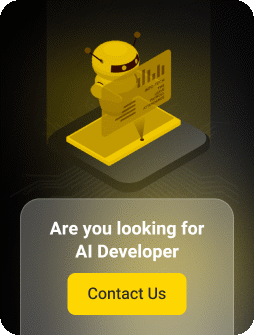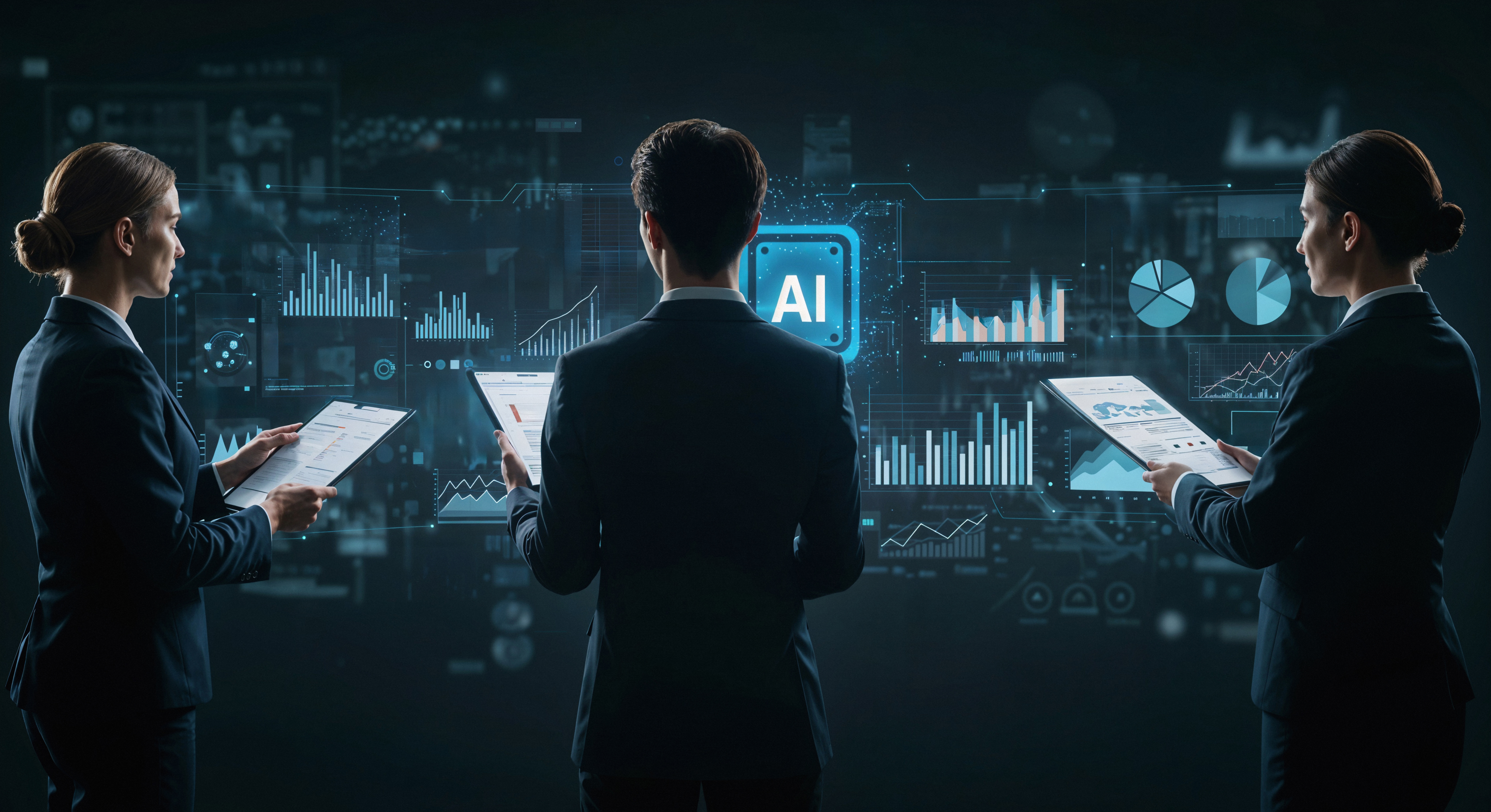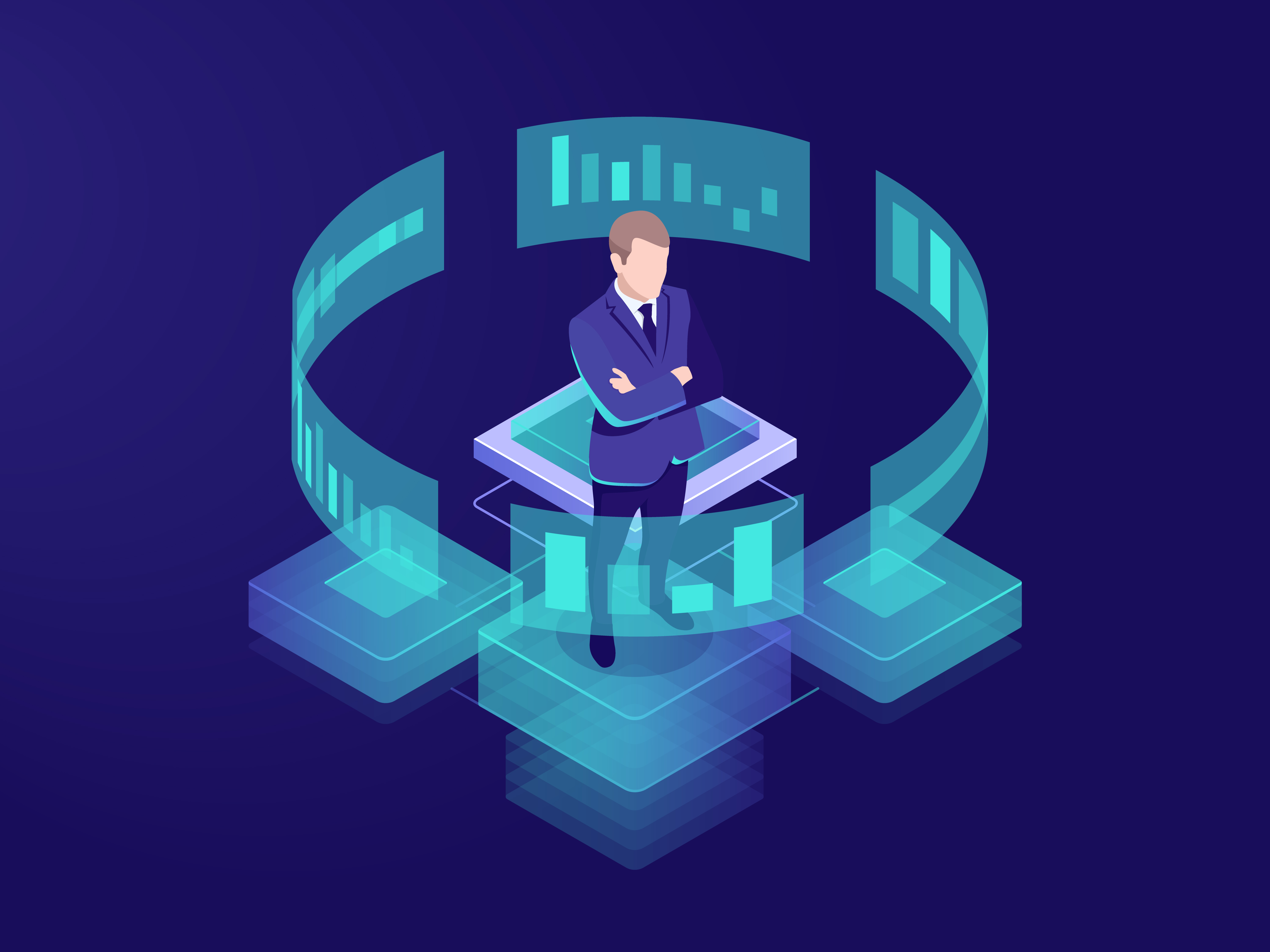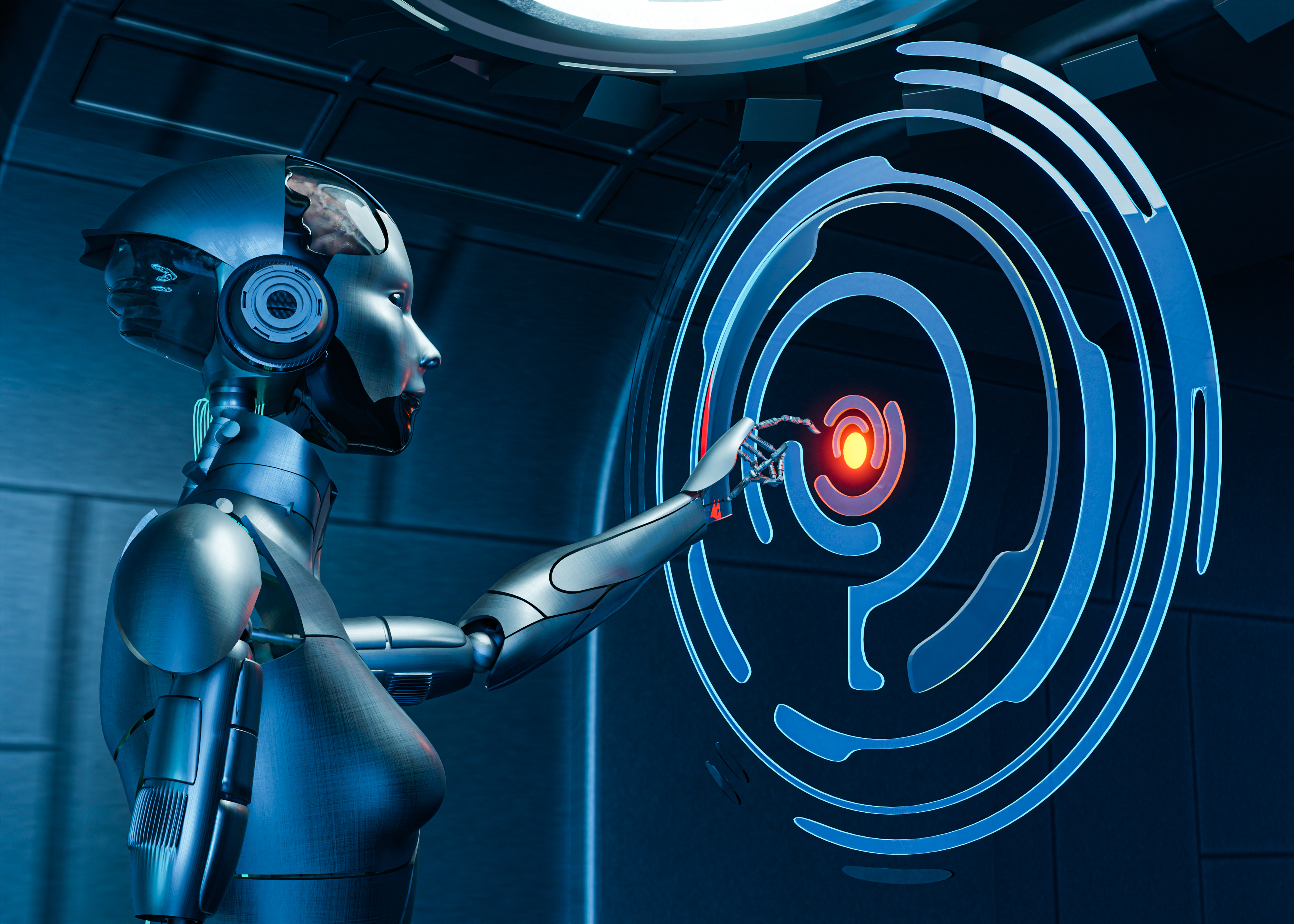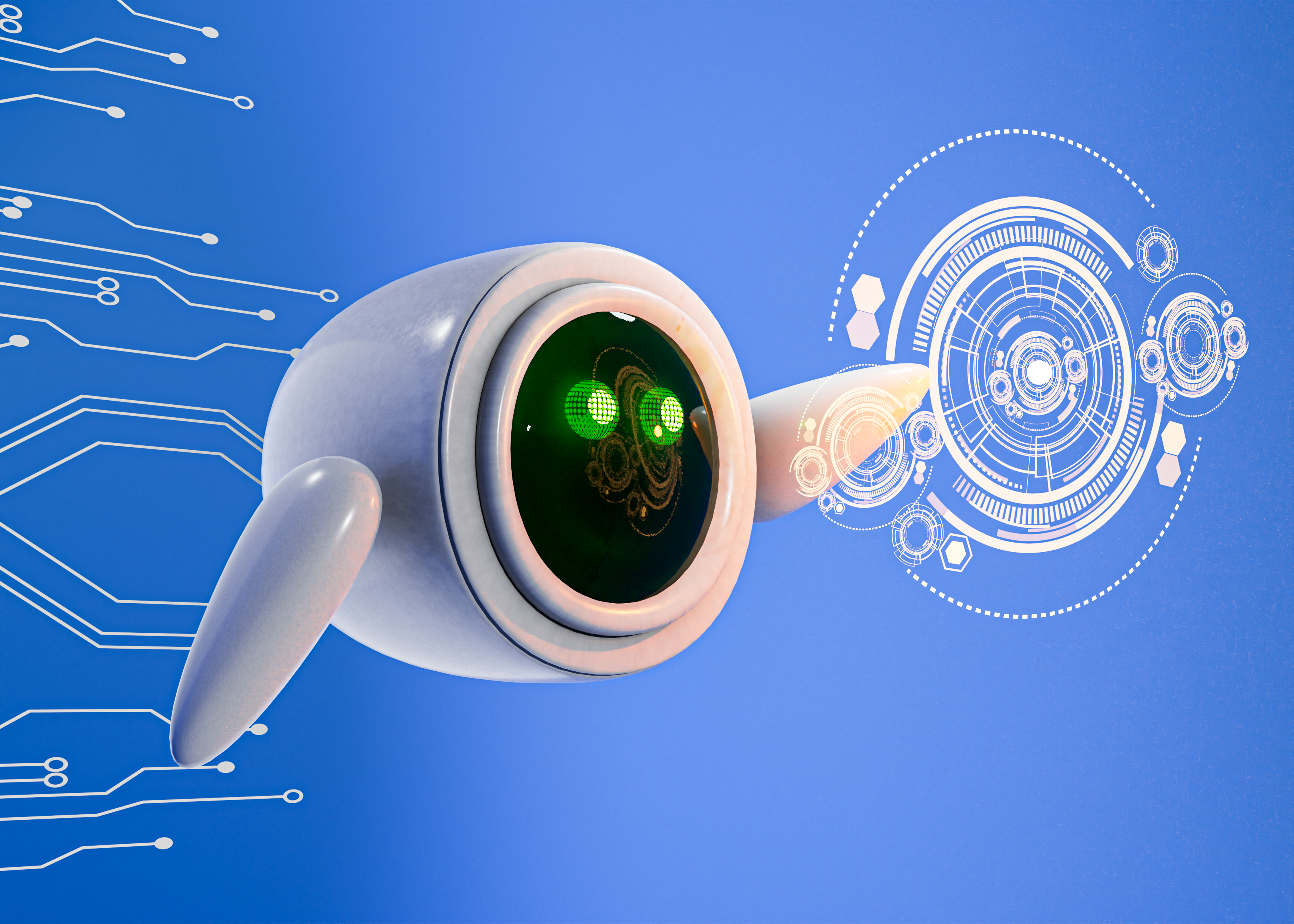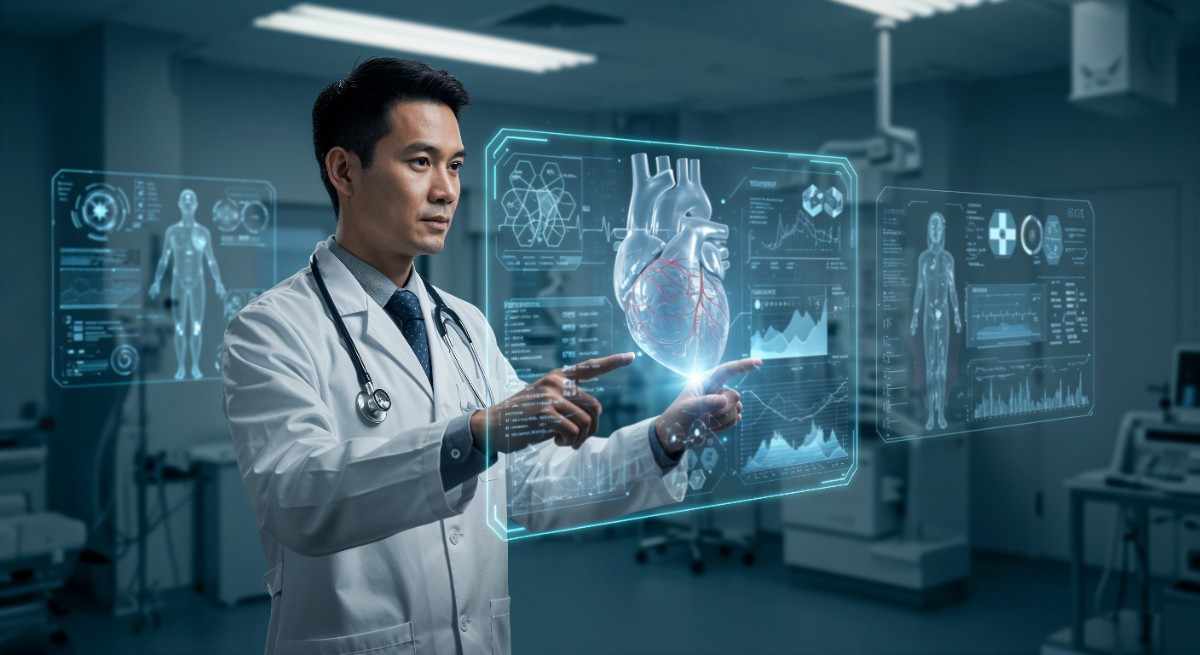For years, Artificial Intelligence has been improving quietly, helping with searches, automating tasks, and making everyday life easier. It was powerful but predictable. Useful, but not revolutionary. And most people saw it as just another tool, not something that would change the world in a very dramatic way.
But that changed in just the first month of 2025. AI has gone from being a helper to leading the way.
DeepSeek’s R1 model may have surpassed ChatGPT, setting a new standard for intelligence, development, and problem-solving, all while operating at a lower cost, something many thought was impossible. Nvidia is pushing this shift even further with its new AI-powered GPUs, which use frame generation to boost performance while using less power. Meta has also announced they will soon have a powerful AI that would be equivalent to a developer.
But it’s not just big tech. Across multiple industries, including finance, healthcare, media, and manufacturing, AI is taking over tasks once considered safe, reshaping jobs faster than anyone expected.
This isn’t just another step forward. It’s a major turning point, indicating AI is no longer just following commands, it’s making decisions through smart AI agents, designing products, and even creating art that rivals human creativity.
Meanwhile, new AI development companies are growing fast, while businesses that don’t adapt are already struggling. The gap between those who use AI and those who don’t isn’t coming, it’s here, and it’s growing every day.
But how exactly is it AI’s year? And how will it take the center stage or change everything? Let’s find out.
AI is changing faster than ever in 2025. Let’s break down the biggest reasons why this year is shaping up to be AI’s most important year yet.
AI Is Now Competing With Humans
For years, AI has been an assistant, helping with tasks but never replacing real expertise. That’s no longer the case.
In a podcast with Joe Rogan, Mark Zuckerberg recently made his AI predictions for 2025, where he said Meta’s AI will perform at the level of a mid-tier software engineer by the end of 2025. This means AI won’t just write code. It will debug, optimize, and improve it like an experienced developer.
Why does this matter?
- Tech companies may hire fewer human engineers as AI takes on core programming tasks.
- AI-driven startups can build software cheaper and faster than ever before.
- Automation isn’t just replacing repetitive jobs anymore, it’s now replacing creative problem-solving.
If AI can code like a professional, how long before it can compete with top engineers, designers, or strategists?
The AI Model Race Is More Intense Than Ever
The competition in AI has reached a whole new level.
Alibaba’s latest AI model, Qwen2.5 Max, is claimed to outperform OpenAI’s GPT-4o, Meta’s Llama-3.1, and DeepSeek’s latest release. If true, this means OpenAI is no longer the clear leader, China’s AI technology is advancing just as fast, if not faster.
Why is this important?
- More competition means faster AI progress as companies race to build the best models.
- Businesses now have more advanced AI options to choose from.
- The AI industry is no longer controlled by a few Western companies—China is catching up.
The AI model war is basically shaping the future of who controls AI.
Note: Alibaba and DeepSeek are both claiming their recently released AI models are not their fastest or most advanced.
Open-Source AI Is Changing the Game
AI used to be locked behind corporate walls, but DeepSeek is breaking that pattern.
Unlike models from OpenAI or Google, DeepSeek is open-source, meaning anyone can use, modify, and improve it.
That’s a massive shift, and it’s already making an impact:
- Startups and developers can now build their own AI models without relying on big tech.
- AI research is moving faster because experts around the world can collaborate.
- Investors are taking notice. DeepSeek’s rise is already shaking up the stock market.
If open-source AI keeps growing, AI development may no longer be dominated by big corporations, it could be driven by the community.
AI Can Now Create Lifelike Videos
For years, AI has been great at generating text and images, but video remained a challenge. That’s changing fast.
OpenAI’s Sora can now generate realistic, high-quality videos from simple text descriptions. This is a game-changer for:
- Filmmaking – AI can create entire movie scenes without expensive CGI.
- Marketing – Companies can generate professional ads in seconds.
- Media & Education – AI-generated news reports and explainer videos could become common.
AI is no longer just generating words, it’s creating entire visual experiences.
AI Can Now Work Independently
Until now, AI only responded to human commands. Agentic AI is changing that.
This new type of AI can:
- Plan and execute complex tasks on its own.
- Make decisions instead of waiting for human input.
- Adapt and improve its performance automatically.
Imagine an AI that doesn’t just answer emails but manages your entire inbox, schedules meetings, and organizes your workflow, without needing constant supervision. That’s exactly where AI is heading.
AI Is Becoming Fully Autonomous
Even more powerful than Agentic AI is Autonomous AI, AI that thinks, learns, and operates without any human involvement.
This means:
- AI could run entire business departments without human managers.
- Companies could automate decision-making, from logistics to finance.
- AI could set its own goals and strategies, something that was once purely science fiction.
The best part, it’s no longer a concept. It’s already being tested. If successful, it could replace not just workers, but entire leadership teams.
Think of it like teaching someone to fish instead of giving them a fish. Once these AI systems learn something, they can keep doing it on their own.
One of the biggest shifts this year is the rise of Agentic AI and Autonomous AI, which Nvidia has identified as the next major breakthroughs, alongside generative AI.
Unlike traditional AI, which waits for human input, smart AI Agents can plan, reason, and complete tasks by itself. It actively works toward goals, adjusting its actions as needed. And Autonomous AI takes this even further by learning from experience, making its own decisions, and improving over time without human oversight. This means AI is no longer just responding, it’s taking initiative.
As AI becomes more independent, AI assistants are evolving beyond simple chatbots. Instead of just answering questions, they can now analyze data, solve problems, and assist in complex decision-making. Businesses are already using AI to manage workflows, automate tasks, and provide strategic insights, making AI less of a helper and more of a collaborator. This shift is not just improving efficiency, it will surely change how entire industries operate.
At the same time, generative AI is advancing rapidly, making AI-powered creativity more powerful than ever. Nvidia’s latest GPUs are revolutionizing gaming by creating realistic environments, improving graphics, and even generating gameplay elements dynamically.
Meanwhile, OpenAI’s Sora is changing video production by allowing users to create high-quality, realistic videos from simple text descriptions. What once required entire teams of designers, editors, and filmmakers can now be done in minutes with AI. Businesses, marketers, and content creators are quickly adopting these tools to produce content faster and more cost-effectively than ever before.
With AI advancing in so many areas, the gap between human intelligence and AI capabilities is closing. AI is making decisions, solving problems, and even creating content that rivals human work. As companies integrate AI deeper into their operations, it’s becoming clear that AI is not just improving the way we work, it’s changing the rules entirely.
2025 is the year of the Artificial Intelligence revolution, where it moves from the background to the center of everything. It’s no longer an emerging technology, it’s the driving force shaping the future.
AI is a force reshaping industries, redefining creativity, and challenging the way we work and think.
In 2025, AI isn’t something we’re preparing for or we should prepare for, it’s something we’re already living with. From agentic and autonomous AI making independent decisions to AI assistants that think critically and generative models that create with near-human intelligence, the transformation is happening now.
But this is just the beginning. As AI continues to advance, the line between human and machine capabilities will only blur further. The question is no longer what AI can do, it’s how we adapt to a world where AI is everywhere.
One thing is certain: AI is no longer knocking on the door. It has stepped in, taken a seat at the table, and it’s here to stay.
The real question is: are we ready to keep up?
If you are, give Eminence Technology a call or fill out the form here so we can get in touch with you!








